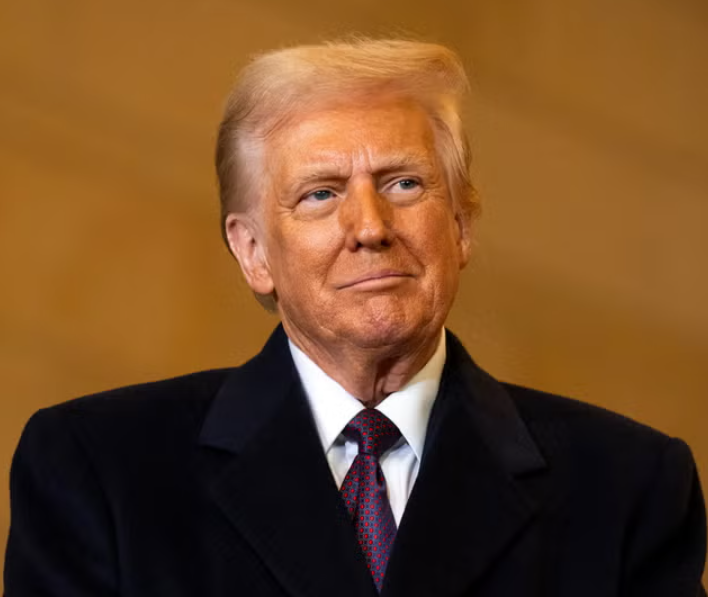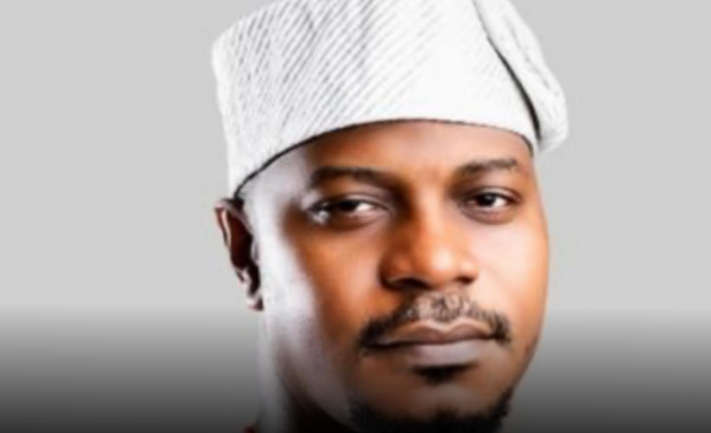
“Nigeria Is A Disgrace”: Trump’s Fiery Accusation Sparks Tensions As He Alleges Genocide Against Christians

In a blistering outburst that has reignited diplomatic tension between Washington and Abuja, former United States President Donald Trump has once again accused the Nigerian government of allowing what he describes as the “genocide” of Christians across the country. Speaking on a conservative radio programme on Friday — a segment later amplified by Fox News — Trump delivered one of his strongest criticisms yet, declaring that Nigeria had become “a disgrace” for failing to curb extremist killings.
According to Trump, thousands of Christians are being slaughtered in Nigeria as a result of extremist violence ravaging various regions. He accused the Nigerian government of failing to do enough to protect vulnerable communities, insisting that the bloodshed has reached catastrophic levels. “Nigeria is a disgrace. The whole thing is a disgrace,” he fumed during the interview. “They’re killing people by the thousands. It’s a genocide, and I’m really angry about it.”
The remarks underline a longstanding position held by Trump’s circle. During his administration, the U.S. had designated Nigeria as a “Country of Particular Concern” over allegations of religious persecution. Although the designation was removed under subsequent administrations, the rhetoric from Trump and his allies remains intense, with the former president warning that the United States could reconsider aid to Nigeria if the situation continues unchecked.
“We give a lot of subsidies to Nigeria. We’re going to end up stopping,” Trump added, hinting once again at the possibility of cutting financial support. He further suggested that the U.S. may consider military action against Islamist militant groups if the Nigerian government “does not do more” to protect Christian communities.
His comments came just as the U.S. War Department announced it was working closely with Nigerian authorities to address what it described as “jihadist terrorist” attacks on Christians. The Secretary of the War Department revealed on X that he had met with Nigeria’s National Security Adviser and his team to discuss the intensifying violence. “Under @POTUS leadership, DOW is working aggressively with Nigeria to end the persecution of Christians by jihadist terrorists,” he wrote, describing the situation as “horrific.”
This statement followed a high-level meeting in Washington, D.C., where Congressman Riley M. Moore hosted a senior Nigerian government delegation led by National Security Adviser Nuhu Ribadu. The delegation also included prominent officials such as Minister of State for Foreign Affairs Bianca Ojukwu, Inspector General of Police Kayode Egbetokun, Attorney General of the Federation Lateef Fagbemi, Chief of Defence Staff General Olufemi Oluyede, and other top security and diplomatic officers.
According to official details, the meeting allowed for “a frank, honest, and productive discussion” on the ongoing persecution of Christians, Nigeria’s persistent terrorism challenges, and the need for deeper cooperation with the United States. The Nigerian officials reportedly outlined the country’s security concerns, counterterrorism limitations, and the difficulty of safeguarding vulnerable communities amid rising attacks across various regions.
Moore, however, emphasized that the U.S. is growing increasingly impatient. “The United States stands ready to coordinate and cooperate with Nigeria,” his office said, “but as President Trump made abundantly clear, the United States will not tolerate continued violence against Christians or other forms of religious persecution.” The statement stressed that “President Trump does not make idle threats,” a remark that many analysts interpret as a sign of potential diplomatic pressure or policy action.
Moore also released a personal statement after the meeting, reiterating the gravity of the situation. “Today, I had a frank, honest, and productive discussion with senior members of the Nigerian government regarding the horrific violence and persecution Christians face and the ongoing threat terrorism poses across Nigeria,” he wrote, signaling that Washington expects tangible progress.
Trump’s fiery remarks, however, have created mixed reactions within Nigeria and beyond. While some Nigerians welcome the international spotlight on worsening insecurity, others argue that such statements oversimplify a complex crisis involving terrorism, banditry, communal clashes, and political instability. Critics say Trump’s rhetoric could inflame tensions or be interpreted as interference in Nigeria’s internal affairs. Supporters of the former president, however, argue that strong external pressure may be necessary to force meaningful action against extremist violence.
Across Nigeria, communities in states like Plateau, Kaduna, Benue, Taraba, and parts of the northeast continue to experience attacks attributed to extremist groups and armed militias. Over the years, Christian-majority regions have suffered heavily from killings, kidnappings, and the destruction of entire villages — incidents that have drawn global concern but have not yet resulted in a decisive end to the violence.
Analysts say the renewed focus from Trump and U.S. lawmakers signals a brewing shift in how Washington intends to engage with Nigeria’s security crisis, especially amid reports of rising diplomatic tension and Nigeria’s internal challenges. Some security experts warn that threats of aid cuts or foreign intervention may complicate diplomatic relations, while others believe Nigeria may face mounting pressure to demonstrate stronger counterterrorism results.
For many Nigerians — particularly families directly affected by violence — the political rhetoric means little if it does not translate into safety on the ground. Yet Trump’s explosive remarks have undeniably thrust Nigeria back onto the global stage, forcing a difficult conversation about the scale of killings and the government’s response.
Whether Nigeria will seek deeper cooperation with the U.S. or reject Trump’s criticism as political posturing remains to be seen. But one thing is clear: the former U.S. president’s accusation has intensified international scrutiny and revived debates about the Nigerian government’s ability to protect its citizens.
As violence continues to claim lives across regions, the world is watching — and Trump’s declaration that “Nigeria is a disgrace” has ensured that the country’s security crisis will not be ignored.


